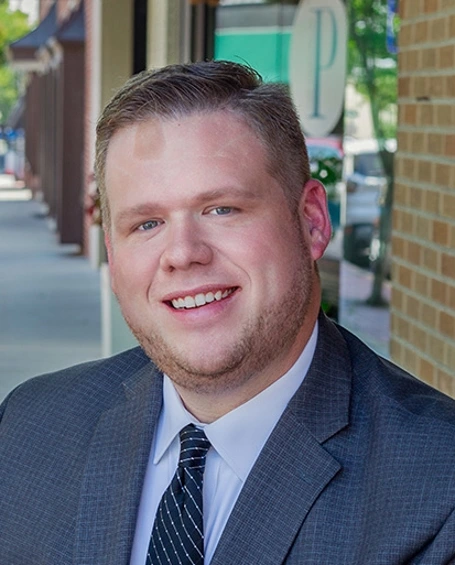Do You Need Power of Attorney if You Have a Joint Account?
About the Author
Benjamin E. Long, a leading attorney at Schlagel Long, LLC, situated in Olathe, KS, has developed a niche expertise in the intricate areas of Power of Attorney (POA) and joint account management in estate planning. His practice is deeply rooted in the belief that the true essence of estate planning goes beyond mere financial wealth. It's about preserving and transferring the totality of one’s life achievements, including intellectual, spiritual, and personal values.
In light of his latest informative blog post, "Do You Need Power of Attorney if You Have a Joint Account?", Benjamin offers specialized guidance on the complexities and implications of POA and joint account ownership. He adeptly navigates the subtle nuances between an Attorney-in-Fact’s role in a POA and the rights and responsibilities entailed in joint account ownership. His expertise extends to addressing the limitations of POA in bank accounts, the fiduciary responsibilities of joint ownership, and the critical aspects of account distribution after the owner's death.
Benjamin’s approach is personalized, ensuring that his clients understand the pros and cons of POA versus joint ownership. His proficiency lies in explaining the access, signing authority, and fiduciary responsibilities associated with these legal tools, and in providing strategic advice on how to best protect family interests and assets.
Educationally, Benjamin is a proud alumnus of Kansas State University, where he earned a B.S. in Biology, and Washburn University School of Law, where he obtained his J.D. with a Certificate in Advocacy. His accolades include being named a Super Lawyer Rising Star and receiving the Martindale-Hubbell Client Distinction Award.
With a commitment to both his practice and teaching, Benjamin serves as an adjunct faculty member at Washburn Law School and as the head coach of the Kansas State University Mock Trial Team. When not engaged in legal matters, he enjoys spending time with his family in Olathe, Kansas.

Understanding Power of Attorney and Joint Accounts
The Role of Attorney-in-Fact in Power of Attorney
Limitations of Power of Attorney in Bank Accounts
Pros and Cons of Power of Attorney vs. Joint Ownership
Access and Signing Authority with Power of Attorney
Joint Ownership and Shared Authority
Fiduciary Responsibility Differences
Inheritance and Ownership Considerations
Account Distribution after the Owner's Death
Sole Ownership in Joint Accounts after Death
Addressing Potential Risks and Vulnerabilities
Joint Accounts and Creditor Exposure
Choosing Between Power of Attorney and Joint Ownership
Implementing a Power of Attorney for Bank Accounts
Naming Payable on Death Beneficiaries
Providing the Bank with a Copy of the POA
Resolving Issues while the Parent is Still Living

Estate Planning Legacy Planner
Everyday, we work with people who have lost someone they care about. There is so much these folks have to organize and manage. This planner organizes the information they will most need, in our experience, saving so much time and unnecessary cost. Besides organizing your information, it's so important to have a good estate plan that will keep your family out of court and conflict.
Please use the button below to receive a free copy of our Estate Planning Legacy Planner, an organization tool essential to any estate plan designed to help your loved ones take care of you and handle your affairs.
